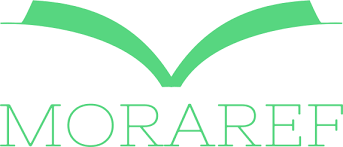Improving Knowledge of The Pancasila Student Profile for Junior High School Social Studies Teachers in Parepare City to Implement The Merdeka Curriculum
Abstract
Indonesian students need to possess the qualities and skills outlined in the Pancasila Student Profile (P3) in order to succeed in the classroom and in society after graduation. There are still problems with the Pancasila Student Profile implementation process, such as teachers' not being competence to interpret P3 in relation to it. Teachers still struggle to determine when P3 should be implemented, and they don't seem creative when it comes to making a project to the unique needs of the chosen students. They also seem to believe that all projects must result in a finished output. The goal of the project seminar, which is a type of community service activity, is to help social studies teachers in the city of Parepare understand how to use Pancasila students (p5) in the classroom as a way to develop students' character. The seminar is focused on raising the profile of Pancasila students (p5) in the junior high school level in the social studies field. Observing teacher needs through surveys and interviews, planning, and seminar execution are the first steps in the implementation process employed for this community activity. The findings of the questionnaires completed by seminar attendees after the activity are used to assess the degree of success of the service. According to the computations from the questionnaire, 93,86% of respondents fell into the very good category. The results of this evaluation indicate that the activities carried out were able to increase teachers' knowledge regarding P3, increase understanding in implementing P3, and motivate teachers to implement P3 in schools well. As a result, it is strongly advised that service projects be conducted often to help teachers become more successful at applying the Pancasila student profile.
Downloads
References
Asiati, S., & Hasanah, U. (2022). Implementasi Projek Penguatan Profil Pelajar Pancasila Di Sekolah Penggerak. Jurnal Lingkar Mutu Pendidikan, 19(2), 61–72. https://doi.org/10.54124/jlmp.v19i2.78
Astuti, N. R. W., Fitriani, R., Ashifa, R., Suryani, Z., & Prihantini. (2023). Analisis Projek Penguatan Profil Pelajar Pancasila (P5) dalam Implementasi Kurikulum Merdeka Di SD. Jurnal Pendidikan Tambusai, 7(3), 26906–26912. http://repository.unpas.ac.id/64678/
Asvio, N., SrIwahyuni, E., Rahmadoni, J., Sugianto, Mindani, & Wulandari, I. (2023). Kompetensi Guru: Faktor Penghambat Implementasi Projek Penguatan Profil Pelajar Pancasila. PRODU: Prokurasi Edukasi-Jurnal Manajemen Pendidikan Islam, 5, 29–45.
Defianti, A., Sakti, I., & Agustinsa, R. (2024). Pelatihan dan pendampingan penerapan projek penguatan profil pelajar pancasila (p5) di smp idhata kota bengkulu. 2(1), 1–8. https://doi.org/10.33369/abdimas.v2i1.33085
Dheafriska, D. A., & Nofiana, M. (2023). Analisis Kebutuhan Guru Rumpun IPA Terhadap Implementasi Kurikulum Merdeka di SMA Negeri Kabupaten Banyumas. Proceedings Series on Social Sciences & Humanities, 13, 58–67. https://doi.org/10.30595/pssh.v13i.883
Diah Ayu Saraswati, Diva Novi Sandrian, Indah Nazulfah, Nurmanita Tanzil Abida, Nurul Azmina, Riza Indriyani, & Septionita Suryaningsih. (2022). Analisis Kegiatan P5 di SMA Negeri 4 Kota Tangerang sebagai Penerapan Pembelajaran Terdiferensiasi pada Kurikulum Merdeka. Jurnal Pendidikan Mipa, 12(2), 185–191. https://doi.org/10.37630/jpm.v12i2.578
Dwiputri, F. A., Anggraeni, D., Guru, P., Dasar, S., Kunci:, K., Pancasila, N.-N., Siswa, K., & Karakter, P. (2021). Penerapan Nilai Pancasila dalam Menumbuhkan Karakter Siswa Sekolah Dasar yang Cerdas Kreatif dan Berakhlak Mulia. Jurnal Pendidikan Tambusai, 5, 1267–1273.
Fitriya, Y., & Latif, A. (2022). Miskonsepsi Guru Terhadap Implementasi Proyek Penguatan Profil Pelajar Pancasila Di Sekolah Dasar. Prosiding Seminar Nasional Sultan Agung Ke-4, November 2022, 139–150.
Hadian, T., Mulyana, R., Mulyana, N., & Tejawiani, I. (2022). Implementasi Project Based Learning Penguatan Profil Pelajar Pancasila Di Sman 1 Kota Sukabumi. Primary: Jurnal Pendidikan Guru Sekolah Dasar, 11(6), 1659. https://doi.org/10.33578/jpfkip.v11i6.9307
Hurman, H., Ali, M., & Nuraini, N. (2023). Implementasi Projek Penguatan Profil Pelajar Pancasila Pada Program Sekolah Penggerak (PSP) Tingkat SMA Dikabupaten Lombok Timur. Jurnal Suluh Edukasi, 04(1), 113–122. http://e-journal.hamzanwadi.ac.id/index.php/suluhedukasi/article/view/23753
Irawati, D., Iqbal, A. M., Hasanah, A., & Arifin, B. S. (2022). Profil Pelajar Pancasila Sebagai Upaya Mewujudkan Karakter Bangsa. Edumaspul: Jurnal Pendidikan, 6(1), 1224–1238. https://doi.org/10.33487/edumaspul.v6i1.3622
Kemendikbud. (2022). Peraturan pemerintah tentang Dimensi, Elemen, dan Sub-Elemen Profil Pelajar Pancasila Pada Kurikulum Merdeka. In Kemendikbudristek BSKAP RI (Issue 021).
Maharani, A. I., Isharoh, & Putri, P. A. (2023). Program P5 sebagai Implementasi Kurikulum Merdeka: Faktor Penghambat dan Upayanya. Jurnal Pendidikan, Bahasa, Sastra, Seni, Budaya, Dan Sosial Humaniora, 1(2), 176–187. https://doi.org/10.59024/atmosfer.v1i2.153
Muh, Saputra, R., & Syukur, M. (2021). PERAN GURU DALAM PENERAPAN KARAKTER PENDIDIKAN ABAD 21 PADA SISWA SMA NEGERI 1 PAREPARE Abstrak. Pinisi Journal Of Sociology Education Review, 1(2), 114–124.
Muhartono, D. S., Wahyuni, S., Umiyati, S., Azhar, A. W., & Puspaningrum, I. I. (2023). Evaluasi Pelaksanaan Kebijakan Kurikulum Merdeka Belajar Dalam Rangka Peningkatan Hasil Belajar. Publiciana, 16(1), 1–12. https://doi.org/10.36563/p
Rizky Satria, P. A., Sekar, W. K., & Harjatanaya, T. Y. (2022). Projek Penguatan. Projek Penguatan Profil Pelajar Pancasila, 138.
Suyatno, Jumintono, Pambudi, D. I., Mardati, A., & Wantini. (2019). Strategy of values education in the Indonesian education system. International Journal of Instruction, 12(1), 607–624. https://doi.org/10.29333/iji.2019.12139a
Widiastari, N. L. P. D., & Yuliandewi, N. W. (2022). Penerapan Kurikulum Merdeka Pada Peserta Didik Kelas 7 dalam Mata Pelajaran Bahasa Bali di SMP Dharma Wiweka Denpasar. Dharma Sastra: Jurnal Penelitian Bahasa Dan Sastra Daerah, 2(2), 166–170. https://doi.org/10.25078/ds.v2i2.987
- Authors retain copyright and grant the journal right of first publication with the work simultaneously licensed under a Creative Commons Attribution License that allows others to share the work with an acknowledgement of the work's authorship and initial publication in this journal.
- Authors are able to enter into separate, additional contractual arrangements for the non-exclusive distribution of the journal's published version of the work (e.g., post it to an institutional repository or publish it in a book), with an acknowledgement of its initial publication in this journal.
- Authors are permitted and encouraged to post their work online (e.g., in institutional repositories or on their website) prior to and during the submission process, as it can lead to productive exchanges, as well as earlier and greater citation of published work (See The Effect of Open Access).








